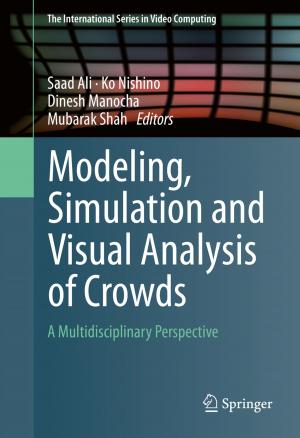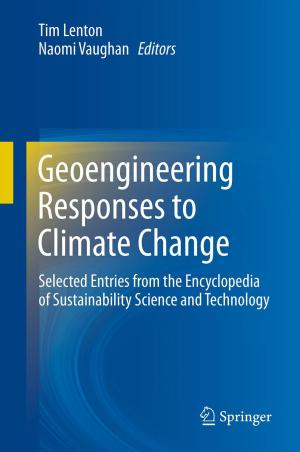Fire Safety Challenges of Green Buildings
Nonfiction, Science & Nature, Science, Physics, Energy, Technology, Engineering, Civil| Author: | Brian Meacham, Brandon Poole, Juan Echeverria, Raymond Cheng | ISBN: | 9781461481423 |
| Publisher: | Springer New York | Publication: | August 5, 2013 |
| Imprint: | Springer | Language: | English |
| Author: | Brian Meacham, Brandon Poole, Juan Echeverria, Raymond Cheng |
| ISBN: | 9781461481423 |
| Publisher: | Springer New York |
| Publication: | August 5, 2013 |
| Imprint: | Springer |
| Language: | English |
Environmental concerns and advances in architectural technologies have lead to a greater number of green buildings or buildings with green, eco-friendly elements. However, from a practical standpoint, there is no incident reporting system in the world that tracks data on fire incidents in green buildings. Fire safety objectives are not explicitly considered in most green rating schemes, and green design features have been associated with photovoltaic panels and roof materials, lightweight timber frame buildings, and combustible insulation materials. Fire Safety Challenges of Green Buildings is the result of an extensive global literature review that sought to identify issues related to green building elements or features and ways to ensure those issues are tracked for future improvement. The book identifies actual incidents of fires in green buildings or involving green building elements, points out issues with green building elements that would increase fire risk, clarifies reports and studies that address ways to reduce fire risk in green design elements, and compares research studies that explicitly incorporate fire safety into green building design. The authors also pinpoint gaps and specific research needs associated with understanding and addressing fire risk and hazards with green building design. Using their data, the authors developed a set of matrices relating these green attributes and potential fire hazards. With these comprehensive tools, potential mitigation strategies for addressing the relative increase in fire risk or hazard associated with the green building elements and features have been identified. Fire Safety Challenges of Green Buildings is intended for practitioners as a tool for analyzing building safety issues in green architecture and developing methods for tracking data related to green design elements and their potential hazards. Researchers working in a related field will also find the book valuable.
Environmental concerns and advances in architectural technologies have lead to a greater number of green buildings or buildings with green, eco-friendly elements. However, from a practical standpoint, there is no incident reporting system in the world that tracks data on fire incidents in green buildings. Fire safety objectives are not explicitly considered in most green rating schemes, and green design features have been associated with photovoltaic panels and roof materials, lightweight timber frame buildings, and combustible insulation materials. Fire Safety Challenges of Green Buildings is the result of an extensive global literature review that sought to identify issues related to green building elements or features and ways to ensure those issues are tracked for future improvement. The book identifies actual incidents of fires in green buildings or involving green building elements, points out issues with green building elements that would increase fire risk, clarifies reports and studies that address ways to reduce fire risk in green design elements, and compares research studies that explicitly incorporate fire safety into green building design. The authors also pinpoint gaps and specific research needs associated with understanding and addressing fire risk and hazards with green building design. Using their data, the authors developed a set of matrices relating these green attributes and potential fire hazards. With these comprehensive tools, potential mitigation strategies for addressing the relative increase in fire risk or hazard associated with the green building elements and features have been identified. Fire Safety Challenges of Green Buildings is intended for practitioners as a tool for analyzing building safety issues in green architecture and developing methods for tracking data related to green design elements and their potential hazards. Researchers working in a related field will also find the book valuable.















